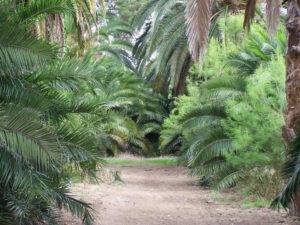By Freya Secrest
 A friend and I were talking recently about the many ways we perceive and interpret the world through our subtle senses. She shared a conversation in which someone made the statement, “My ‘first’ language is intuition.” That statement got me thinking about what I would consider as my “first language”. How do I first connect with and hear the world? How did it first speak in return? How might I widen my perception in order to better understand and communicate with others?
A friend and I were talking recently about the many ways we perceive and interpret the world through our subtle senses. She shared a conversation in which someone made the statement, “My ‘first’ language is intuition.” That statement got me thinking about what I would consider as my “first language”. How do I first connect with and hear the world? How did it first speak in return? How might I widen my perception in order to better understand and communicate with others?
As I slow down and tune into my personal process of communication, it is clear to me that I perceive the world through patterns of movement. I notice the way a person holds their body, how upright they stand, where their shoulders fall. I gather impressions from their rhythm of walking. These impressions are my first forms of meaning-making and connection building. Next I might listen to their tone of voice or the speed of their conversation. Only then do I register the words they are saying.
Following this track, I find that I need to widen my definition of languages beyond the verbal. When my children were small I remember asking them to “use their words” rather than grabbing or crying to get something they wanted. It was an important step to help them understand their feelings and gain more direction and control of their energy. As I consider it now, I see that my instruction in itself recognizes that an exchange of information includes verbal, emotional and energetic communication. Our familiarity with all three elements influences our ability to interpret and “language” our experience.
A language helps us to receive information, interpret it, and communicate to others. A language builds connection. Words can build those bridges and they are certainly the form most consciously used for exchange in our culture. But they are only one way to communicate an experience. Emotional and energetic languages also are tools of communication when we learn how to access them.
Once I was walking in the woods and I passed by a small grove of cedar trees. Focused on the path I was walking, I unexpectedly had the sensation of being called out to. “Hey! Over here!” It was as if I had walked by a group of people and had ignored them. When I looked around I became aware that the trees were calling out to me. As I turned towards them, I felt a warm fellowship. It was a palpable feeling of walking through a field of communion.
 But multi-sensory information is not new to the subtle realms of our world. While we humans have privileged spoken language and only recently have come to recognize auditory, visual and kinesthetic senses as part of our communication platform, other realms communicate fluently through all these and a more formative language — the language of love and shared being. It is not specifically auditory, kinesthetic or visual, though it can use any and all of those forms. Love communicates through qualities such as respect, honor and joy and the energy of our intention in action. It is with these languages that we build our fluency for communicating in Gaia’s subtle ecology of life.
But multi-sensory information is not new to the subtle realms of our world. While we humans have privileged spoken language and only recently have come to recognize auditory, visual and kinesthetic senses as part of our communication platform, other realms communicate fluently through all these and a more formative language — the language of love and shared being. It is not specifically auditory, kinesthetic or visual, though it can use any and all of those forms. Love communicates through qualities such as respect, honor and joy and the energy of our intention in action. It is with these languages that we build our fluency for communicating in Gaia’s subtle ecology of life.
To widen into a deeper framework for communication, we need to be able to articulate our felt energies as well as connect feeling with our mental concepts and subtle experiences. Like light coming into a room from several windows, using multiple streams of information gives a wider perspective of what we are sensing. It is possible that when we are rooted more deeply into our natural form of connecting with the world that we will be better able to navigate other forms of expression and build bridges of understanding with each other.
There are so many languages I might like to learn. I have friends who speak Portuguese, French, science and honey bee. Our world can speak wind and storm and drought and warm rain, but I think under it all our first language, love, shines light through all of our windows.
 Join Freya Secrest for A Touch of Love, a Summer Discovery Course, from June 25-July 1. For more information or to register, click here.
Join Freya Secrest for A Touch of Love, a Summer Discovery Course, from June 25-July 1. For more information or to register, click here.
Views from the Lorian Community publishes essays from a team of volunteer writers expressing individual experiences of a long term, committed practice of Incarnational Spirituality (and the general principles shaping such a practice.) Views expressed do not necessarily reflect the sentiments or thoughts of any other person in Lorian or of Lorian as a whole. If you would like to subscribe, please visit our website and click on Follow Our Blog Via Email. Or email the editor:drenag@lorian.org.
